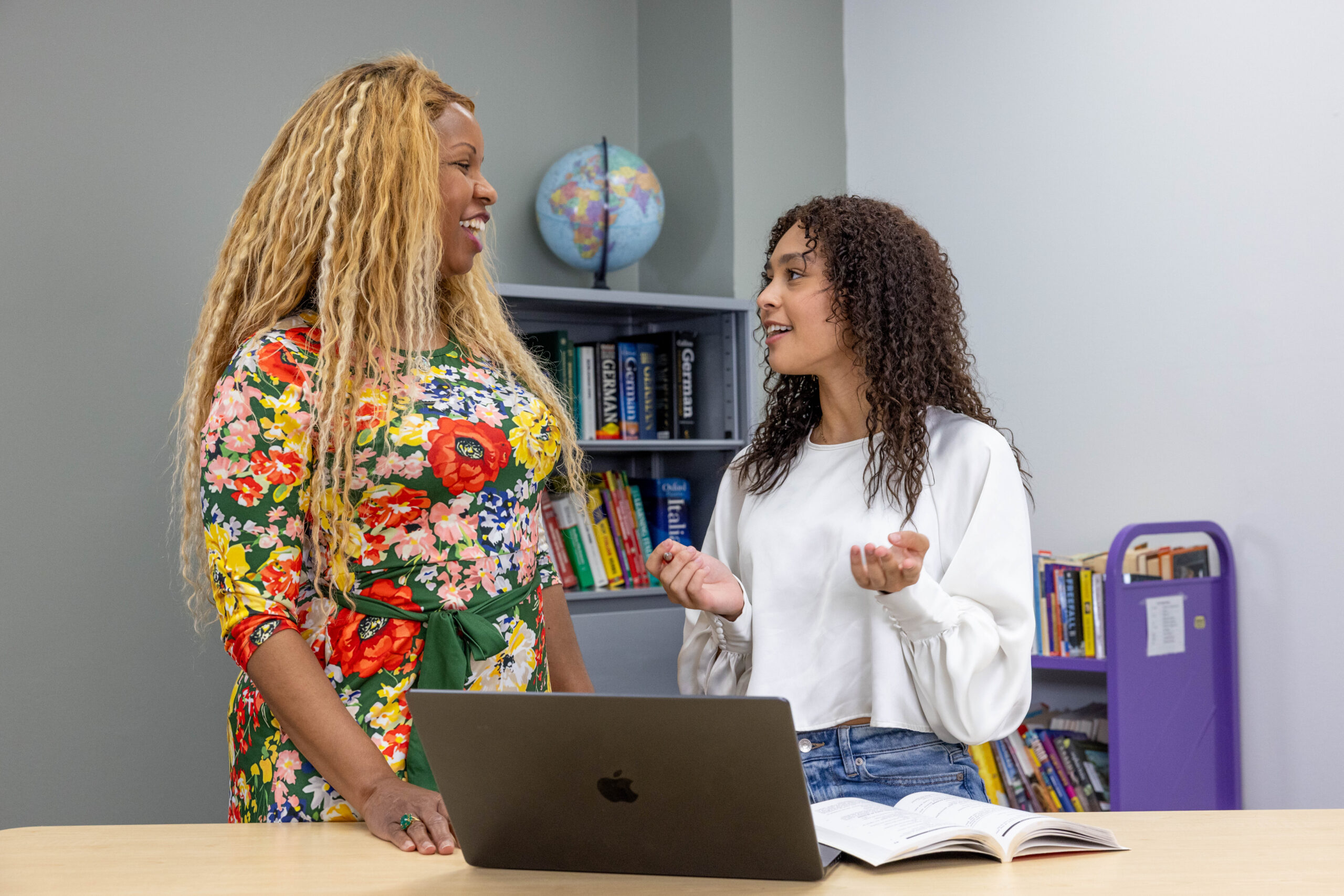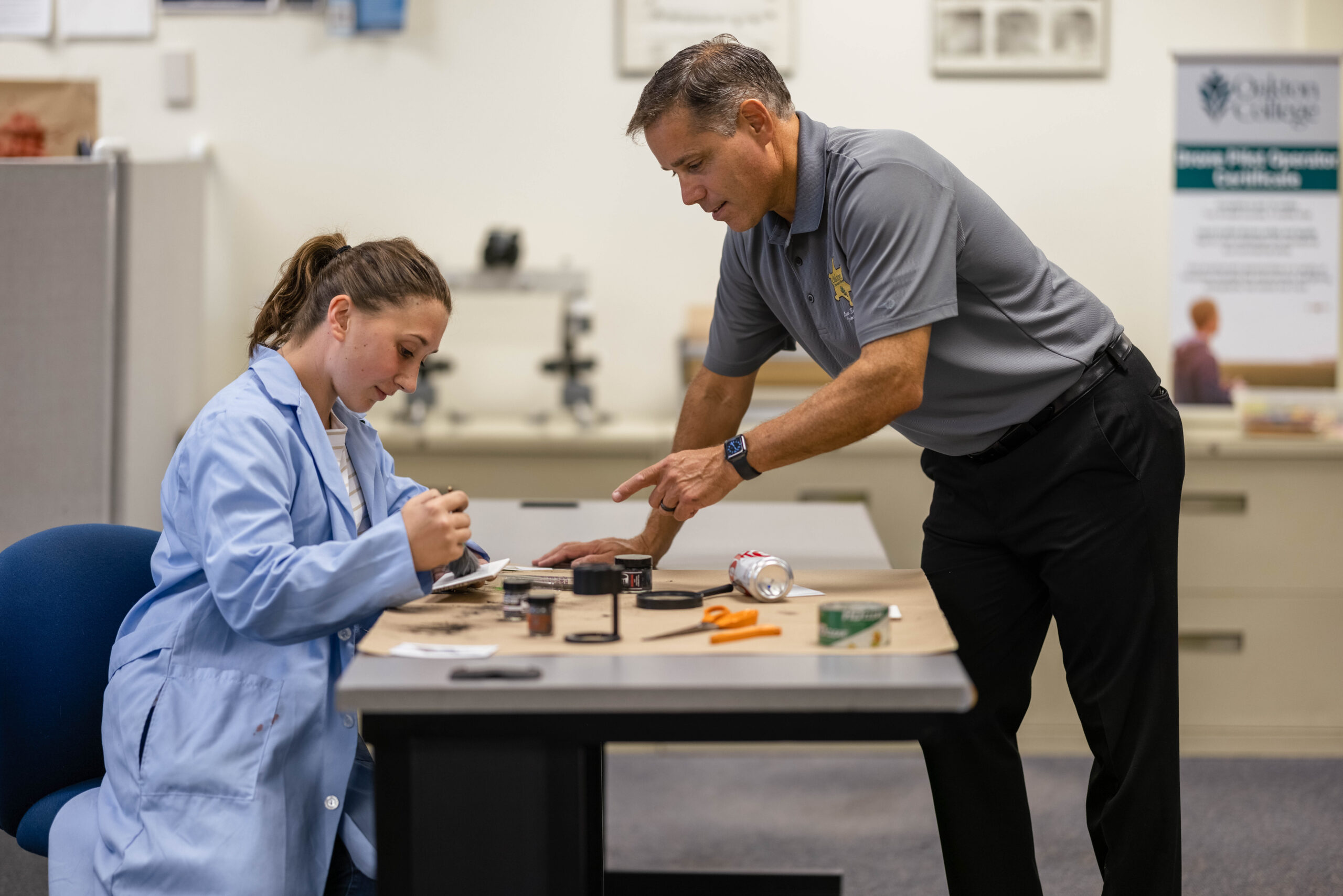The Institute for Evidence-Based Change
Oakton College Sees Increased Student Persistence Through Caring Campus
LONG BEACH, CA – Oakton College in Des Plaines, Ill., has seen a profound and measurable impact from implementing Caring Campus, reflected in increased student persistence rates from semester to semester. Known as “The Persistence Project,” at Oakton, the college exemplifies how a culture of care can transform student experiences and outcomes.
The Persistence Project encourages faculty to adopt simple, relationship-building behaviors such as learning students’ names in the first two weeks, scheduling individual check-ins with students, and providing early feedback. In fall 2024, the college analyzed outcomes for students enrolled in courses taught by faculty participating in the project. Results showed that first-time Oakton students who took at least one course with a Persistence Project faculty member persisted from fall to spring at a rate 17.8 percentage points higher than their peers — 77.4 percent compared to 59.6 percent. These fall 2024 results align with a consistent trend of increased student persistence seen since the college first implemented the Persistence Project in 2016.
“Our biggest takeaway from the Persistence Project is that connection and belonging are critical to student success,” president Dr. Joianne Smith said. “Caring Campus provides a framework with clear ways to operationalize and create that caring environment.”
The success of the faculty model led Oakton to expand Caring Campus to staff with commitments including the “Oakton Hello,” greeting students within 10 feet of them. Staff also wear nametags and lanyards to signal availability and support, coordinate warm referrals across departments, and welcome students at the start of each semester with welcome tables. One particularly innovative staff-driven initiative is an interactive, digital campus map, developed to address students’ hardships with navigating the campus.
“We’ve heard great feedback from faculty that Caring Campus has helped them understand their students more deeply, reflect on their teaching, and build meaningful connections,” Kelly Becker, Assistant Vice President of Institutional Effectiveness and Strategic Planning, said. “And our staff feel empowered and validated by this work as vital contributors to student success as well.”
Becker said that faculty conversations with students have brought greater awareness of the challenges students face outside the classroom. This insight has led Oakton to hire additional Care Coordinators – social workers who help students access on- and off-campus resources – and launch a Caring Closet, stocked with non-perishable food, toiletries, and other essentials.
“We’ve heard from students that they feel cared for, seen, and supported at Oakton,” Smith said. “They’ve also shared that they feel more comfortable asking for help and having open conversations with faculty and staff – which is incredibly meaningful for us to hear.”
Caring Campus is now part of Oakton’s strategic plan, solidifying its role in shaping a student-centered culture. As the college continues to expand this work, leaders are exploring ways to capture and share the impact of staff on student outcomes, just as they have with faculty through the Persistence Project.
“Caring Campus helps colleges take the idea of ‘connection,’ something we all know is important, and turn it into specific, measurable actions,” Caring Campus CEO and founder Dr. Brad Phillips said. “Oakton College is a national leader in this work, demonstrating how a sustained culture of care has significant effects on student persistence, retention, and success rates.”
PHOTO CAPTIONS:
IEBC_OAKTON1: Oakton College has seen a profound and measurable impact from implementing Caring Campus, reflected in increased student persistence, retention, and success rates from semester to semester.
IEBC_OAKTON2: In fall 2024, Oakton College analyzed outcomes for students enrolled in courses taught by faculty participating in the project. Results showed that students who took at least one course with a Persistence Project faculty member persisted from fall to spring at a rate 17.8 percentage points higher than their peers.


Oakton College Sees Increased Student Persistence Through Caring Campus
The Institute for Evidence-Based Change
- Image Title
- IEBC_OAKTON1
- Image Caption
- IEBC_OAKTON1: Oakton College has seen a profound and measurable impact from implementing Caring Campus, reflected in increased student persistence, retention, and success rates from semester to semester.
Right-click on the image to save
- Image Title
- IEBC_OAKTON2
- Image Caption
- IEBC_OAKTON2: In fall 2024, Oakton College analyzed outcomes for students enrolled in courses taught by faculty participating in the project. Results showed that students who took at least one course with a Persistence Project faculty member persisted from fall to spring at a rate 17.8 percentage points higher than their peers.
Right-click on the image to save


